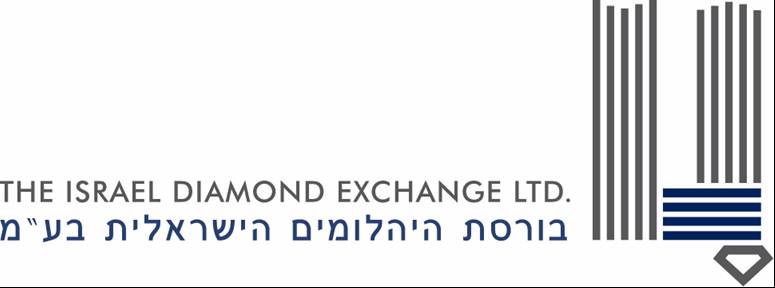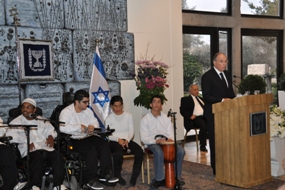Ramat Gan, Israel – December 30, 2013: Shimon Peres, president of the State of Israel, hosted the annual reception for ILAN, the Israel Foundation for Handicapped Children, last Thursday, at the presidential residence in Jerusalem. He was joined by students of the Herzfeld School for Special Education, , the ILAN board, and , Shmuel Schnitzer, president of the Israel Diamond Exchange (IDE), who is also ILAN’s Chairman of Community Relations.
Indicating the children who were gathered on the stage to perform for the gathering of dignitaries, President Peres said that while the Israeli diamond industry produces countless diamonds, these children were the industry’s most precious jewels, and the Israeli diamond business community had good reason to be proud of them.
In his speech, ILAN Chairman Ehud Ratzabi made special mention of the IDE and its members who, he said, “not only contribute funds but also invest considerable time and energy in improving the lives of many handicapped children.” Addressing Schnitzer directly, he said that ILAN hoped to see the close cooperation and support by the IDE continue and develop further during Schnitzer’s term.
In his address, Shmuel Schnitzer emphasized that the IDE and the Israel diamond industry at large work hard to make a living and consequently contribute significantly to Israel’s economic growth. However, he noted, the IDE membership also supports numerous social causes. “By embracing the cause of ILAN, we hope to contribute toward improving the quality of life of those children who have been dealt a bad hand in life,” he said.
Earlier this month, the IDE held a dedicated fund raising drive for ILAN at the Ramat Gan Diamond Exchange complex, in concert with ILAN’s national collection campaign. The cooperation between ILAN and IDE began in 2012.
About ILAN
ILAN was established in 1952 and assists thousands of physically impaired children and adults suffering from neuromuscular disorders such as infantile paralysis, cerebral palsy, and muscular dystrophy. The organization, which relies for the largest part of its funding on donations, provides services to thousands of handicapped people throughout the country from its 40 branches and 30 facilities. Assistance is offered to anyone with physical disabilities no matter what their affiliation, including individuals from kibbutzim, moshavim, the Arab and ultra-Orthodox sectors.









